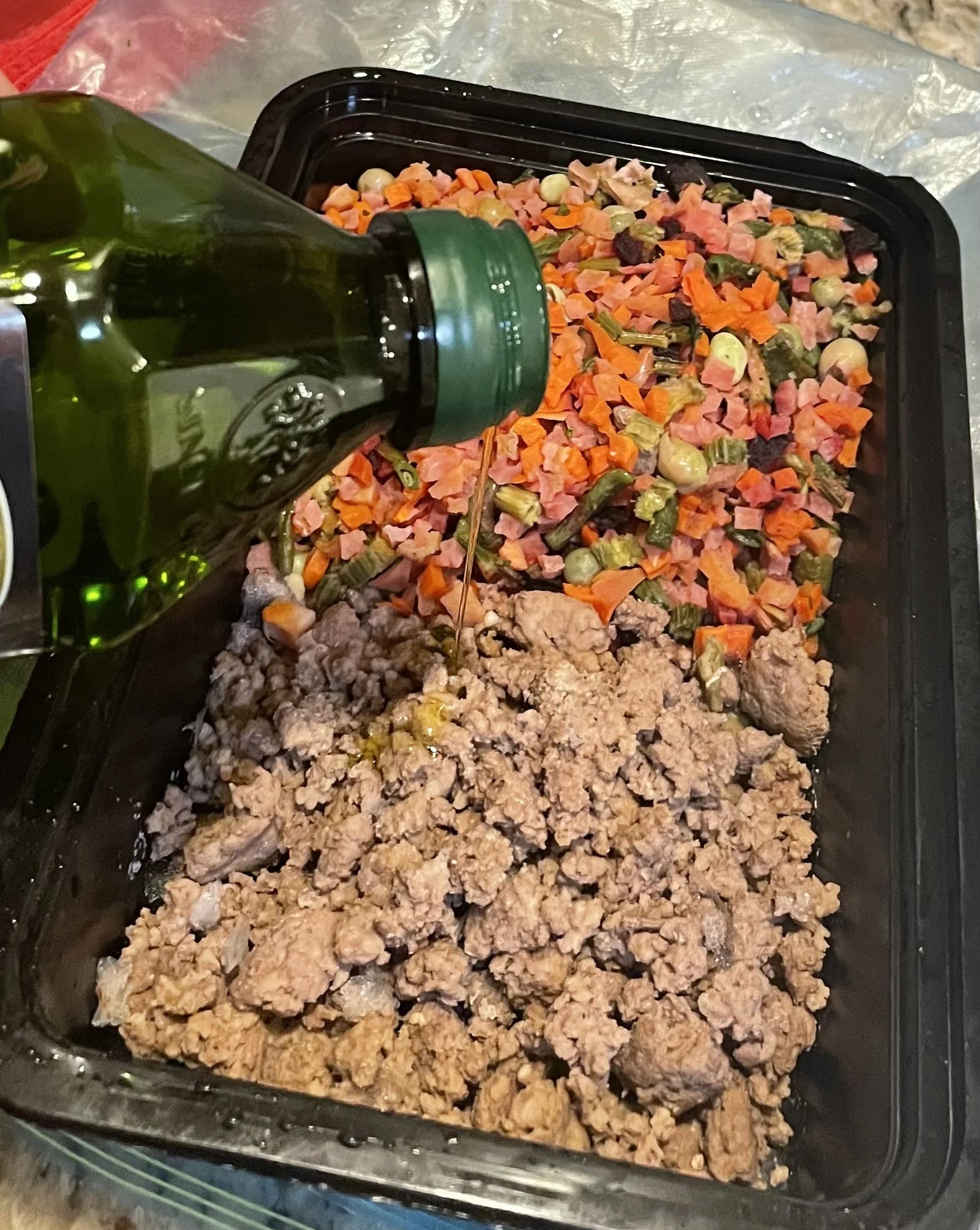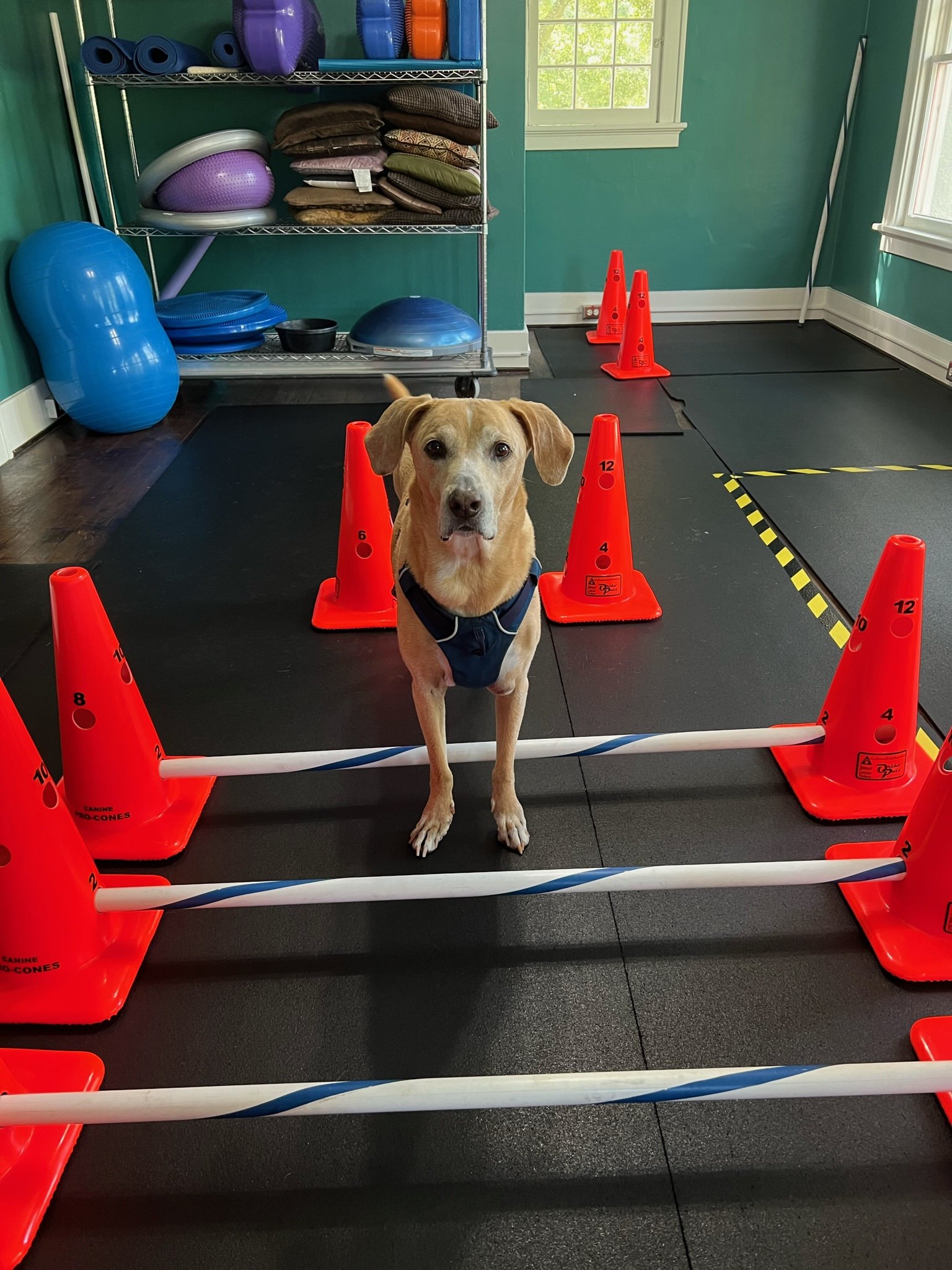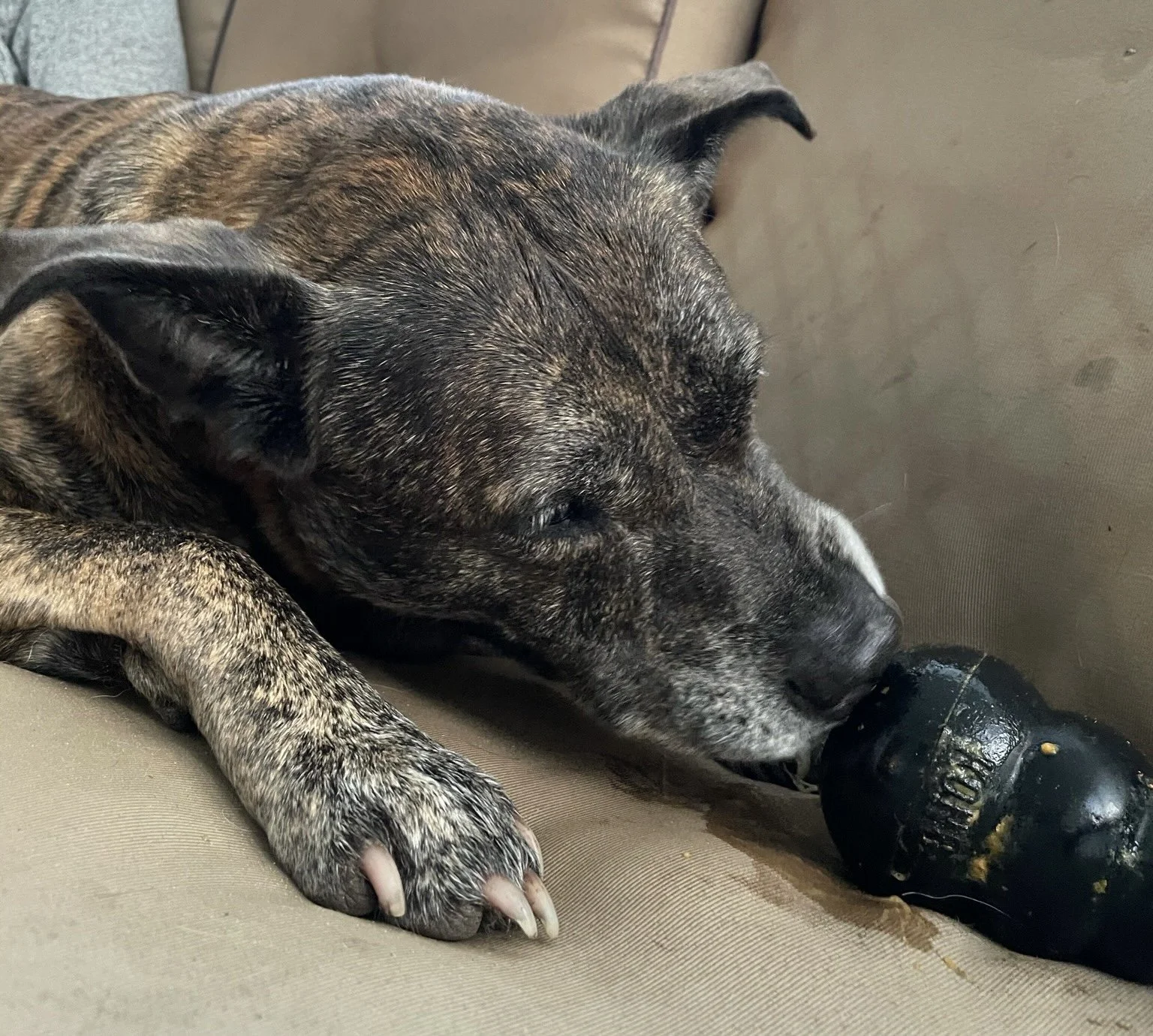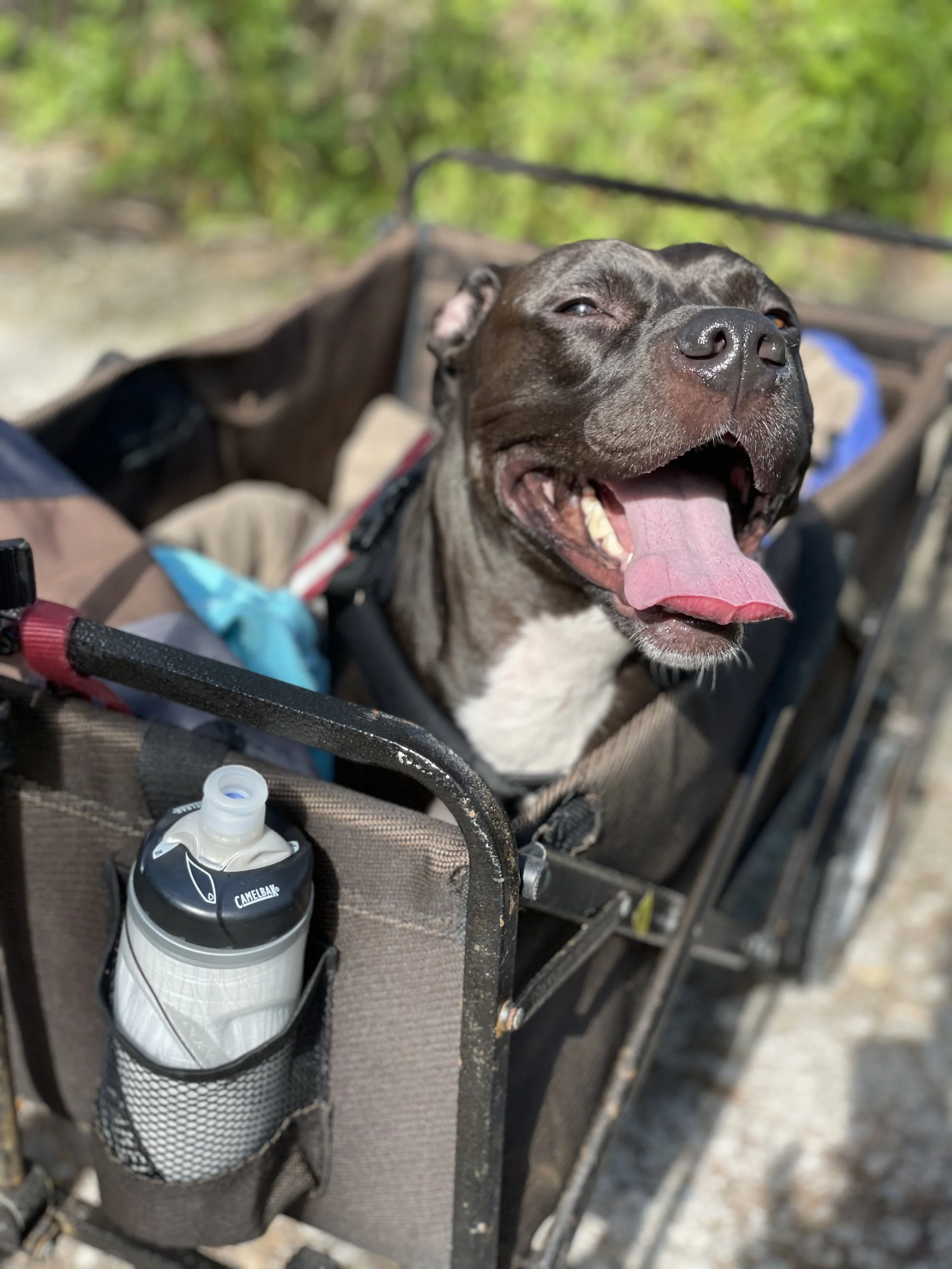January 2024
Happy New Year to all of our clients and pets! We hope that this year brings happiness, love, and adventures! Thank you for continuing to trust us with your pet’s mobility and pain management.
Resolutions for longevity
It is time for New Year’s Resolutions to help ourselves live longer, healthier, happier lives. We can also help our dogs could live longer, healthier, more robust lives. We are blessed with 10-15 years of time and while this is certainly not long enough there are things we can do to make the most of those 15 years.
Here are Dr. Mason’s key points for canine longevity:
Nutrition
Studies have shown that using whole food as the primary diet or as toppers for your pets can increase longevity. This likely improves the quality and amount of vitamins and minerals, while reducing the amount of preservatives in the diet.
Adding vegetables and fruits to your dog’s normal diet can improve fiber content and reduce calories associated with extra processed treats.
Feeding an appropriate amount of calories for your dog’s lifestyle can help reduce adipose tissue that produces inflammatory mediators. Weight loss can be anti-inflammatory which is pain relieving.
Overweight dogs are more prone to metabolic diseases that can shorten lifespan.
Deciding the appropriate amount of calories to feed your pet can be daunting. The bags of dog food give wide ranges and without guidance can leave you confused. Let us help you in determining the proper amount of calories for your pet. Each life stage requires different calories and other health conditions can also affect their activity level as well. We can help you pick the proper diet that has the proper nutrition for your pets specific needs.
Dr. Harvey’s Veg To Bowl Pre-mix
Mobility
Exercise is not only helpful to maintain mobility but has many benefits to health as well. Longer low intensity exercise can help to improve metabolic function by improving how our cells use oxygen to create energy. Strength exercises can help maintain mobility and prevent slipping which can cause injuries. Natural aging changes can cause general muscle loss, so adding in strength promoting exercises can help maintain muscle for longer.
Sarcopenia is the term used to define natural muscle loss as we and our pet’s age. To combat this, a regular strength training program should be followed to reduce the rate of muscle atrophy. This can be done by adding in a few exercises each day, taking twice daily walks, or participating in a low impact sport.
Once your pet is cleared for an exercise program begin with short leash walks and slowly increase these to atleast 15 minutes twice a day. Follow this with backwards walking, sit to stands, or down to stands to add in some strength work. For a detailed exercise plan, please ask us for more at your next recheck!
Mental health
Boredom is a common issue in our pets which can lead to many behavioral problems. If you are unable to take your pet for long walks, consider food puzzles, snuffle mats, or scent work games to keep their minds entertained. These games can help our senior pets combat canine cognitive disease. A short, slow “stop and smell” walk can be beneficial to help your pet’s boredom and engage their brain.
Twice daily leash walks can also help to change your pet’s environment and allow for new smells, thereby working their brain.
HAVE FUN!
Dogs teach us to live in the moment. Don’t get bogged down with the daily stresses of life and remember to take your dog out back and just have fun!
Car rides, special leash walks, extra beach days can mean a lot of fun and mix up our dog’s daily regimen.
We hope these tips are helpful ways for you to increase your pet’s health span and can also encourage you in your own personal journey of health! If you have any questions or want to learn more, send us an email.
Happy New Year and let’s make resolutions to help our dogs live their longest and best life!
Peace and Love,
Dr. Lisa Mason





